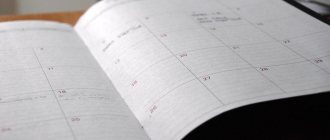A daily routine or regime is a structured sequence of daily actions, daily activities prescribed and coordinated with individual biorhythms. Structuring allows you not only to organize things and avoid stress from time pressure, but also to form the body’s ability to quickly engage in processes and inhibit activity. A well-designed daily routine for a student will allow him to absorb a large amount of information and allocate enough time for rest.
What is the daily routine
- Proper use of sleep time.
- Time for nutrition and personal hygiene.
- Proper distribution of time for rest and work.
- Time for physical activity and sports.
The ability to create the right daily routine makes us disciplined, develops focus and organization.
Thus, a life rhythm is developed, where the expenditure of time, as well as energy, on minor things that can be done without is reduced to a minimum.
In this article, we will try to comprehensively answer the most important questions regarding the daily routine for a healthy lifestyle, we will talk about the impact that biorhythms have on the effectiveness of activities, as well as methods and methods for creating an effective day for different categories of people.
A little theory about the daily routine
We often wondered about the daily routine of a successful person. The secret of these people is that their daily routine is thought out to the smallest detail; they plan their time in order to distribute it rationally and as efficiently as possible.
The ability to correctly place emphasis and, as a result, manage your working time is of great importance for discipline and organization. And if you are interested in developmental or training programs, want to stick to a diet or organize proper nutrition, you cannot do without a daily routine.
A person needs a routine so that time does not take advantage of our absent-mindedness. Sooner or later, every person in his activity is faced with haste, the feeling that time is amorphous, and confusion arises in work and personal affairs.
Think about it - can you honestly answer the question right now of how much time was spent on this or that activity without controlling the use of your time? A daily routine for a healthy lifestyle allows you to effectively and competently manage your time, and being deprived of the valuable planning skill, it is impossible to make long-term plans.
There are only 2 types of biological rhythms - external and internal
(respectively, exogenous and endogenous). They appear in synchronization with the internal cycles of the body (sleep and wakefulness), as well as external stimuli (the change of day and night).
When composing a regime, circadian regimes are of greatest interest.
– these are cyclical fluctuations in the intensity of various biological processes that are associated with the change of night and day. Their period is equal to a full day - 24 hours.
The influence of biorhythms
When creating an effective daily routine, one cannot ignore the biorhythms of the human body. Practice shows that the so-called “larks”, having slept until 2 o’clock in the afternoon, having previously gotten used to waking up at 7 am, feel lethargic and are slow in their pace of activity.
In the context of this section, we will give a definition of biorhythms
– these are periodically repeated changes in the nature and intensity of biological processes, as well as phenomena in living organisms, on which functionality depends.
Gymnastics
Already at one year old, you can accustom your baby to regular morning exercises. Gymnastics may include the following simple exercises:
- Squats with handle support.
- Walking in place or along a line.
- Retrieving toys from heights.
- Crawling on all fours.
- Hand raises.
- Rollovers from stomach to back and from back to stomach.
- Simple exercises on a fitball with the help of a parent.
- Take deep breaths and exhales.
The exercises must be demonstrated by the parent conducting the gymnastics. The baby will watch, repeat and remember the movements.
How to create a daily routine for owls and larks
Psychologists often refer to the well-known distribution of people, depending on their period of activity, into “larks” and “night owls.” The latter make great efforts to get up early in the morning; they are most active at night and in the evening. Larks, on the contrary, are literally boiling with energy in the morning, which is depleted in the evening.
This classification is very conditional, since if the correct daily routine of an adult has been drawn up, then, if desired, the type of wakefulness can be changed without causing harm to the body. The main thing is to choose a strategy and show willpower.
Athletes, businessmen and politicians who travel a lot often cannot adhere to any standard schedule, therefore the daily routine of great people is often radically different from the daily routine of an ordinary person. These people, constantly under pressure from jet lag, find it very difficult to remain effective in their work. To do this they use the following actions:
- The first days upon arrival are planned in such a way as to reduce physical and psychological stress.
- 2 days before the flight, light food is consumed, alcohol and unusual dishes are excluded.
- If you have to fly from east to west, if you have a choice, it is better to give preference to an afternoon or morning flight. When traveling by plane from west to east, it is better to give preference to an evening flight.
It has been proven that it is absolutely impossible to create a universal daily routine for months to a year that will suit each of us. There are too many personal factors to consider, but key points that can be called global and applicable to everyone can be highlighted. A few details.
Ask yourself if this is the meeting you need to be in.
Meetings, meetings, presentations - all this eats up a lot of your time. Usually such events are scheduled inconveniently and are completely ineffective. Why are they even needed?
Why do we appear on them?
- We don't want to upset the other person. He made an appointment with you, which means he needs to discuss something. Reluctantly, you agree to come to the meeting, sacrificing your important matters.
- We feel included in the process. For example, if the whole team meets to discuss a project, you feel like you have to show up. Otherwise, your colleagues will think that you are not as dedicated as others.
- The desire to be in the know. If a meeting seems important (for example, someone from management will be present or a fateful decision is planned), you naturally want to be there.
In fact, your efficiency could be higher if you stayed at your desk and stayed focused on the process. How do you know which meeting you need to attend and which you can skip? Use this rule.
You should come to the meeting if:
a) you are confident that your presence will influence the outcome of the meeting,
b) you will increase your effectiveness thanks to this meeting.
To determine whether your presence will affect the outcome of the meeting, ask yourself whether you are going to talk about your work or want to sit silently. Perhaps there will be someone in the room who can express your opinion more confidently and better.
To determine whether you will be more effective after this meeting, ask yourself if you will learn anything new from this meeting. If you don't learn anything new, aren't willing to ask questions, don't talk about your work, and therefore don't expect constructive criticism, then your effectiveness is unlikely to improve.
If in neither the first nor the second case you cannot explain to yourself why you need to come to this meeting, skip it. Your time is limited and you need to use every minute wisely.
About the importance of sleep
Regardless of whether the daily routine of a woman or a man is drawn up, sleep must be given special attention. We live in interesting realities, when people do not devote the proper amount of time to their rest, or sleep longer than the body really needs. This, as a result, has a negative impact on human activity, and a clear daily routine and sufficient time for sleep give you many advantages - a person can rest and recover, there is no risk of sleep and nervous system disorders.
The best period for sleep is from 11 pm to 7 am.
Research shows that 7 to 8 hours of sleep per night is enough for an adult. There are successful people for whom 3 to 6 hours of sleep is enough, but this is rather a rare exception.
Recommendations for those who want to set their own schedule and go to bed earlier:
- Stop surfing the Internet or watching TV series and devote time to your favorite book before bed.
- A couple of hours before you go to bed, take time for light exercise - running, walking, cycling.
- Don't eat heavy food at night.
- Ventilate the room before going to bed.
Skills of a one-year-old child
What should a 1 year old baby be able to do?
- Stand confidently, walk (optional), crawl, sit.
- Rise to your feet from any position, squat and stand.
- React to relatives.
- Respond to name.
- Confidently hold and grasp objects.
- Pronounce syllables or simple monosyllabic words.
- Try to climb or climb onto low objects, or get off them.
- With the help of adults, assemble simple pyramids.
- Point to objects.
- Build small towers.
- Roll toys on wheels.
- Roll the ball.
- Open and close furniture doors.
- Imitate the actions performed by adults: shake or shake your head, clap, comb your hair, blow on something.
- Show emotions and feelings: smile, cry, hug, laugh, get angry, cuddle with mom.
- React to music: try to sing along, move.
- Imitate animals.
- Fulfill simple requests: give, take, bring, put.
- Play “okay”, wave your hand, primitively play “peek-a-boo”.
This is not a complete list of all skills. But development occurs individually, so the baby does not have to be able to do everything on the list. Some skills can be mastered gradually and a little later.
How to create a daily routine - let's move on to practice
About eating. Everyone knows that proper nutrition is very important for the functioning of all body systems. Food is a kind of fuel for the body; with it we will not only get energy for the day, which we will spend during the day on physical and mental activity, but also provide the body with microelements and vitamins.
It is very important to eat nutritiously and regularly; any diets must be agreed with your doctor before practical use.
Point two – rest.
The correct daily routine for an adult involves mandatory rest, during which the body’s strength and performance are restored. During working hours, a person cannot do without rest, because it is impossible to maintain a consistently high working capacity without it. Do not refuse breaks from work, as they will give you new strength and greater efficiency and productivity at work.
It is very important to get proper rest after work.
Let's say you spend all day at the computer. When you return home, give up spending time with him, devoting time to communicating with family, reading or self-education.
A little about work. Each of us works, regardless of age. Children attend schools, students attend seminars and lectures, adults earn a living and build a career. It is very important to plan your working time. Time management technique. Self-management techniques and recommendations that will allow you to increase personal efficiency at work are presented in a large assortment on the Internet - you just need to choose the most suitable option.
Don't forget about physical activity, even if you are creating a daily routine for a girl.
Physical education is health; training should be considered, first of all, by those whose work limits the physical activity of the body throughout the day.
If it is not possible to visit swimming pools and gyms, you can exercise at home or on sports grounds.
What to avoid to keep up with everything
- Don't waste time watching TV . You can watch any news or film on the Internet without advertising. This will save you time.
- Limit your time on social networks, forums and games . It's a waste of time.
- Try to get rid of bad habits . Have you ever wondered how much time you spend on smoking breaks? This not only takes away your time, but also your health. Bad habits are not compatible with success.
- Learn to overcome laziness, lack of composure and lack of punctuality. Set reminders on your phone and an alarm in advance so you don't be late. Set a time limit for completing all tasks.
Practical recommendations
“The dullest pencil is better than the sharpest memory.” Write down your ideas using diaries, special programs, or just a sheet of paper. The routine displayed on paper will constantly remind you of things to do.
Don't be disingenuous
– in the initial stages, include in your schedule what you do throughout the day. Add to the schedule those items that will be accurately completed. So, if you can’t go to the gym for a long time and add this item to your schedule without doing it, this is not the best solution. The daily routine must be followed.
Consider physiology
– each of us has needs and, while creating a mandatory routine for every day, we cannot neglect them. Staying up late, giving up personal hygiene and eating as and when you want is not the best choice.
Stephen Covey Method
Stephen Covey is considered one of the followers of the Franklin system. He is a world-renowned expert and coach in the field of management. Covey is a professional speaker and the author of numerous books. One of them was included in Time magazine's list of the most influential business literature.
A book ahead of its time, The Seven Habits of Highly Effective People. Covey wrote it in 1989, but it became a bestseller only after its re-release in 2004.
The Covey concept is based on a sequence of seven skills.
- Sharpen the saw, that is, constantly improve yourself.
- Achieve synergy, that is, strive for mutually beneficial interaction.
- Be proactive.
- Try to hear first, and only then be heard.
- Start with the end goal in mind.
- Think in the spirit of “win-win.”
- Do what needs to be done first.
The matrix of task distribution and prioritization will help you implement the last skill. Covey borrowed it from the 34th President of the United States, Dwight David Eisenhower.
All tasks are divided into four groups:
- Urgent and important (needs to be done as soon as possible);
- Non-urgent important (strategic tasks with a distant deadline);
- Urgent, unimportant (needs to be done quickly, but you can put it off or not do it yourself);
- Non-urgent and unimportant (as a rule, such matters can be crossed out or entrusted to third parties).
According to Covey, successful people rarely find themselves in time pressure, as they quickly deal with tasks from categories 1 and 3 and without mercy sacrifice things from square 4. At the same time, they devote 60–80% of their time and energy to solving problems from square 2, because they are the locomotive of progress.
Conclusion
To become more effective, at the end or beginning of the day, write down the tasks facing you and prioritize them using the Eisenhower Matrix (or the Covey Matrix, whichever you prefer). To do this, you can use the Eisenhower app (iOS) or MyEffectivenessHabits (Android). Try to maintain the proportion: 40% are important urgent matters, 60% are important non-urgent ones.
How to create a daily routine for an entrepreneur?
Based on the above, let's try to create a work plan for a novice entrepreneur. The very first thing you need to do before the start of the business day is to re-familiarize yourself with the tasks and goals that you plan to achieve. Study how many new contacts you need to make, how many letters to send, how many calls? The list of cases will directly depend on the nuances of doing business.
It is extremely important to draw up and adhere to calendar planning, which, we note, is closely related to goal setting,
as well as tasks for every day. Using a calendar plan, you can distribute events across days over a long period of time, following a previously created schedule.
Suppose a to-do list has been created and you have even started to implement them. If the amount of work that was planned makes your head swell and you absolutely don’t know where to start, it’s time to study the work plan of the average entrepreneur, which we present below.
Where to begin
We analyze regular and email. Working with morning mail is very important - you learn about key events, respond to partners, and establish new contacts.
Step two
- phone calls. Get a list of clients and partners that you need to call today in order to resolve any issues that arise. After making all the necessary calls, be sure to check the box in your plan - they say, the job is done.
Reading
- the most important thing. Study new, useful information for your core activities, using not only offline, but also online sources. Visit profiled forums, download useful books and articles.
Things to do for the evening
Before you go to bed, do not forget to complete these activities. The first and most important thing is to check your email for new messages. If there is something urgent, we respond without delay.
Put things in order on your desktop - work notes, printouts of articles, books, office supplies. Put all this away until tomorrow, today you are already resting. Don't forget to make a to-do list for tomorrow and check it against the calendar plan you created earlier.
Why is it important to make a daily plan?
Imagine an ordinary morning: you open your eyes, check your phone, wash your face, have breakfast, and drive along your usual route to work. You always have this minimal initial plan that brings the system to life. Thanks to him, you don’t waste time on unimportant things. What if you make a plan like this for the whole day? It is not necessary to write everything down minute by minute; it is enough to make a list of tasks and meetings, plan the important, separate the urgent from the non-urgent. Yes, at first glance, it may seem complicated and it seems that such planning keeps within strict limits. But, on the contrary: the more clearly you see your day, the easier it is to deal with canceled meetings, rescheduled errands and other unpredictable factors. After new tasks appear, you are not lost, but know where they can be inserted without wasting time and stress. In essence, the daily plan is our confidence and fulcrum.
How to create a child's daily routine
Child's daily routine
- this is responsibility and discipline that will help the child adapt to the new conditions of kindergarten and school. But besides this, drawing up a child’s routine greatly helps parents cope with their responsibilities on time.
Undoubtedly, such events save time, which the mother can spend on relaxation, on herself, or on her beloved spouse.
For babies
The first years of life are especially important for the future development of good health of the toddler. He must get enough sleep at least 4-5 times a day, eat food about 6 times and take walks in the fresh air at least 2 times a day.
In order not to forget anything and not get confused, you need a strict daily routine:
- 06.00 First meal, continued rest.
- 09.00 The baby wakes up, brushes his teeth, and washes himself.
- 09.30 Second meal, games, wakefulness (at the toddler’s discretion).
- 10.00 The baby gets dressed and gets ready for fresh air.
- 10.30 Promenade in a stroller or in mom’s arms.
- 13.00 Third meal.
- 13.30 Rest.
- 16.30 Meal, light snack.
- 17.00 Walk, games, communication (depending on what the baby wishes).
- 20.00 Hearty dinner.
- 20.30 Communication with family and friends.
- 23.00 Wash and brush your teeth at night.
- 23.30 Light snack.
- 00.00 A good night's sleep.
Many people are concerned about the fact that the child goes to bed so late, otherwise there is a possibility that the baby will wake up during the night and ask for food, and then the schedule will be disrupted. When the baby is a little older, you can put him to bed at approximately 9 pm.
In kindergarten
A properly designed daily routine allows the child to quickly adapt to the new place and schedule of the educational institution:
- 7.00-8.00 Arrival at kindergarten, communication.
- 8.00-8.30 Morning meal.
- 8.30-9.00 Self-education, cognitive activity in a group.
- 9.00-9.15 The baby gets dressed for outdoor activities.
- 9.15-11.30 Games, communication outdoors.
- 11.30-11.45 Return, wash the baby’s hands, prepare food.
- 11.45-12.30 Hearty, delicious lunch.
- 12.30-13.00 Games, getting ready for bed.
- 13.00-15.00 Day rest.
- 15.00-15.30 Light snack.
- 15.30-17.00 Training, group classes.
- 17.00-18.00 Outdoor recreation.
- 18.00-18.30 Hearty dinner, enriched with vitamins.
- 18.30-19.00 Going home.
- 19.00-19.30 Promenade with family and friends.
- 19.30-20.00 Games, light dinner.
- 20.00-20.30 Washing, brushing teeth at night.
- 20.30-7.00 A strong and sweet night's rest.
Nutritional Features
During the baby's year, it is still recommended to breastfeed or use an adapted formula. But breast milk or formula is no longer the main food. It is also important to include other foods in the diet that ensure that the child’s body receives the necessary nutrients. At one year old, the baby eats much less often than in the first six months of life. He eats 6 times (with milk feedings). Portion sizes also increase to take into account the needs of a growing body.
A one-year-old child has about 8-10 teeth, so chewing skills can be developed. To do this, offer not only pureed food, but also soft food in small pieces (1-1.5 cm in size). These can be fresh or thermally processed non-solid vegetables and fruits. You can also give baby cookies and bread.
What foods should be included in the diet
The baby's diet per year should be varied, complete and balanced. The diet includes the following products:
- Breast milk or formula. The daily volume is no longer large; you can leave only two feedings: the morning after waking up, and the evening before bedtime. But milk or formula can be offered for an afternoon snack.
- Cereals: wheat, corn, buckwheat, rice, barley. Cereals are offered in the form of porridges, baked goods and pasta.
- Eggs: either chicken or quail. First, the yolk is given, then the white is gradually introduced.
- Meat: beef, rabbit, veal.
- By-products (beef): liver, tongue, heart.
- Poultry: turkey, chicken (if there is no allergy).
- Vegetables, melons, root vegetables: carrots, potatoes, different varieties of cabbage, zucchini, beets, pumpkin.
- Fruits and berries: pears, plums, blueberries, apricots, apples, peaches, raspberries. They are given fresh, in puree, compotes. Citrus fruits are not offered per year. Red berries and fruits are excluded in the presence of allergic reactions.
- Fermented milk products: yoghurt, cottage cheese, hard cheese (lightly salted).
- Cow's milk.
Menu
Let's look at the daily menu for a one-year-old baby in the table:
| Eating | Food |
| First appointment | Formula or breast milk. |
| Breakfast | Dairy-free or milk porridge (can be with butter), half an egg, some fruit if desired (can be added to the porridge), juice. |
| Dinner | Vegetable dish (soup, puree, stew), vegetable oil, meat or fish (in the form of steamed meatballs or cutlets, soufflé), a piece of bread, juice. |
| Afternoon snack | Cottage cheese, fruit, children's cookies, kefir/milk. |
| Dinner | A vegetable dish (can be with pasta), a little vegetable oil, fish or meat, juice or compote. |
| Last meal | Breast milk or formula. |
Norms, portion sizes and volumes of food consumption
How much should a one year old child eat per day? To determine the norm, you can divide the baby’s body weight by 8 or 9. On average, a baby weighing 10-11 kilograms will eat from 1100 to 1300 grams per day.
Now let’s look at the consumption standards for individual products:
- Breast milk or formula – up to 300-400 ml.
- Porridge – 200 g.
- Vegetable puree – 200 g.
- Fruit puree – 110-125 g.
- Fruit children's juice - about 100 ml.
- Fermented milk products – up to 200 g.
- Meat – 70-80 g.
- Fish - about 60-70 g.
- Cow's milk - no more than 150-200 ml.
- Cookies, children's crackers - 10-20 grams.
- Wheat bread – 10-15 grams.
- Vegetable oil – 5 g (teaspoon).
- Butter – 5 g.
- Egg – 50-60 g (half a chicken egg).
Hygiene procedures
Hygiene procedures for a one-year-old child include:
- Washing. You should wash your baby in the morning after waking up. Use warm water, do not let it get into your eyes. Wet your hand generously and gently rub it over your baby's face. It is important that the procedure is comfortable, otherwise the child will be afraid of washing and will flatly refuse it.
- Brushing your teeth. This procedure should begin after the first teeth appear. Use a soft silicone brush (there are options that can be placed on the parent’s finger) and a special children’s paste. Cleanings are carried out in the morning and evening.
- Hand washing. Hands should be washed after coming from outside using soap. Before eating, washing with running water is sufficient.
- Bathing. Bathe your baby in a baby bath or in an adult bathtub in a special seat. Maintain the optimal water temperature - about 37-37.5 degrees. Offer water games with rubber toys.
Recommended schedule
Due to the fact that everyone is different, it is impossible to offer the only correct and ideal plan. Therefore, here I will give an example of a schedule that is most suitable for the majority according to biological rhythms.
So, the most effective and useful daily routine:
The first half of the day
6.00 – 7.00 – Internal processes are launched, adrenaline is produced, which is responsible for activity and energy. It is best to do yoga at this time, do exercises, this will help enrich your organs with oxygen and tune in for the coming day. By the way, neurologist Pam Spoor calls for making love at this time, as a number of hormones are released, which has a positive effect on the state of the body. At night, apart from pleasure, you can’t expect any other effects.
7.00 – 8.00 – After your morning activity, it’s time to replenish your calories. Breakfast should be hearty, even if you are looking after your figure, you can take a risk and treat yourself to a bun. Do you know why? Because, firstly, before the evening you will have time to expend extra calories, and secondly, most of them will go “to the brain,” since it spent a lot of energy during the night, creating dreams and processing previously received information.
8.00 – 8.15 – the most favorable time for taking medications and a complex of vitamins, provided that you have eaten, otherwise the body will instantly remove them through urine, and there will be no result.
8.15 – 9.00 – if possible, take a short walk before studying or working, because for a person who has a busy day ahead, it is very important to get a sufficient amount of oxygen. This will ensure the efficiency of brain activity, the absence of headaches and vigor, a good mood. Try to leave the house a little earlier to walk down the street and also get a portion of vitamin D, which is produced thanks to ultraviolet radiation.
9.00 – 11.00 – get to work, and solve the most complex problems, since during this period your brain activity is at its peak, which makes it very easy to generate ideas and make calculations.
11.00 – 13.00 – the blood gradually begins to “leave” from the brain and flow to the stomach, so you should do easier things that can be dealt with in a short period of time.
13.00 – 13.30 – the food you take during this period will be quickly digested and will not cause discomfort, depriving you of the desire to move. So organize lunch, even if you don’t really want to eat, you need to saturate your body at least a little.
Afternoon
13.30 – 14.00 – it would be ideal to organize a visit to a medical facility, since the activity of all organs decreases, along with sensitivity, which means that your body is not so susceptible to pain. And taking painkillers will have a longer lasting effect than if you took them at another time.
Regardless of how you feel and the situation, even if you are provoked into conflict, try to control yourself and not react. The health consequences will be excessive due to the relaxation of all body systems.
15.00 – 16.00 – take a short walk, breathe in some fresh air, this will help restore the feeling of activity and “wake up” the body. If you can’t get away from work for a short time, at least just go to the window to “catch” the sun’s rays. But this is subject to good weather.
16.00 – 18.00 – run to the gym, as training during this period is the safest and most effective. Do you know why? Because various hormones and proteins are produced that help protect the heart during intense exercise and also reduce the risk of muscle injury.
18.00 – 19.00 – if you need to buy new shoes, feel free to go to the store, as you will probably guess the size. By this time, your feet will swell, and in the future the purchased shoes and other things will not put pressure on you, which cannot be said about the morning purchase.
19.00 – 20.00 - It's time for dinner. You can even allow yourself a little alcohol; it won’t do you much harm, since the enzymes that the liver produces are at their maximum, which means they easily neutralize harmful substances.
21.00 – 22.30 - rest. Get ready for sleep, take a warm bath, ventilate the room. If necessary, if you suffer from insomnia, drink a glass of warm milk or eat a spoonful of honey. Avoid activity, quarrels, work or hanging out on the Internet, otherwise the next day you will forget about vigor and good mood.
23.00 – you should be asleep already. If you are interested in learning about what happens to your body at night and what processes are activated, look at the article about human biological rhythms.
Main components
1. Sleep
In the first place, of course, is sleep, otherwise all the planned tasks will go to hell due to the fact that it will be difficult to even just keep your eyes open, not to mention fulfilling your duties. Adequate rest is vital and should be at least 8 hours.
By the way, oversleeping also has an adverse effect on health, paradoxically.
You should go to bed no later than 11:00 pm, otherwise your body will produce cortisol, a stress hormone. And this will eventually lead to depression, then what kind of cheerfulness and joy can we talk about? For more detailed information, check out this article.
2. Food
It should be complete, so you shouldn’t skip meals because you’re busy or because you want to maintain your figure. With food, the body gets the opportunity to replenish energy reserves so that you have the strength to work and, in general, want something. Among other things, various vitamins and microelements are supplied.
3. Rest
Be sure, no matter how busy you are, to take breaks, otherwise you will begin to use up your reserve resources, and this can lead to serious illnesses. So, once you're done with your responsibilities, give yourself the opportunity to do things that bring you joy and help you recover.
And if you don’t know how to organize your leisure time, because you’re used to devoting all your time only to your career, then make a wish list. Many of them have arisen in your mind from time to time, but you have not dared to bring them to life - start implementing them immediately.










